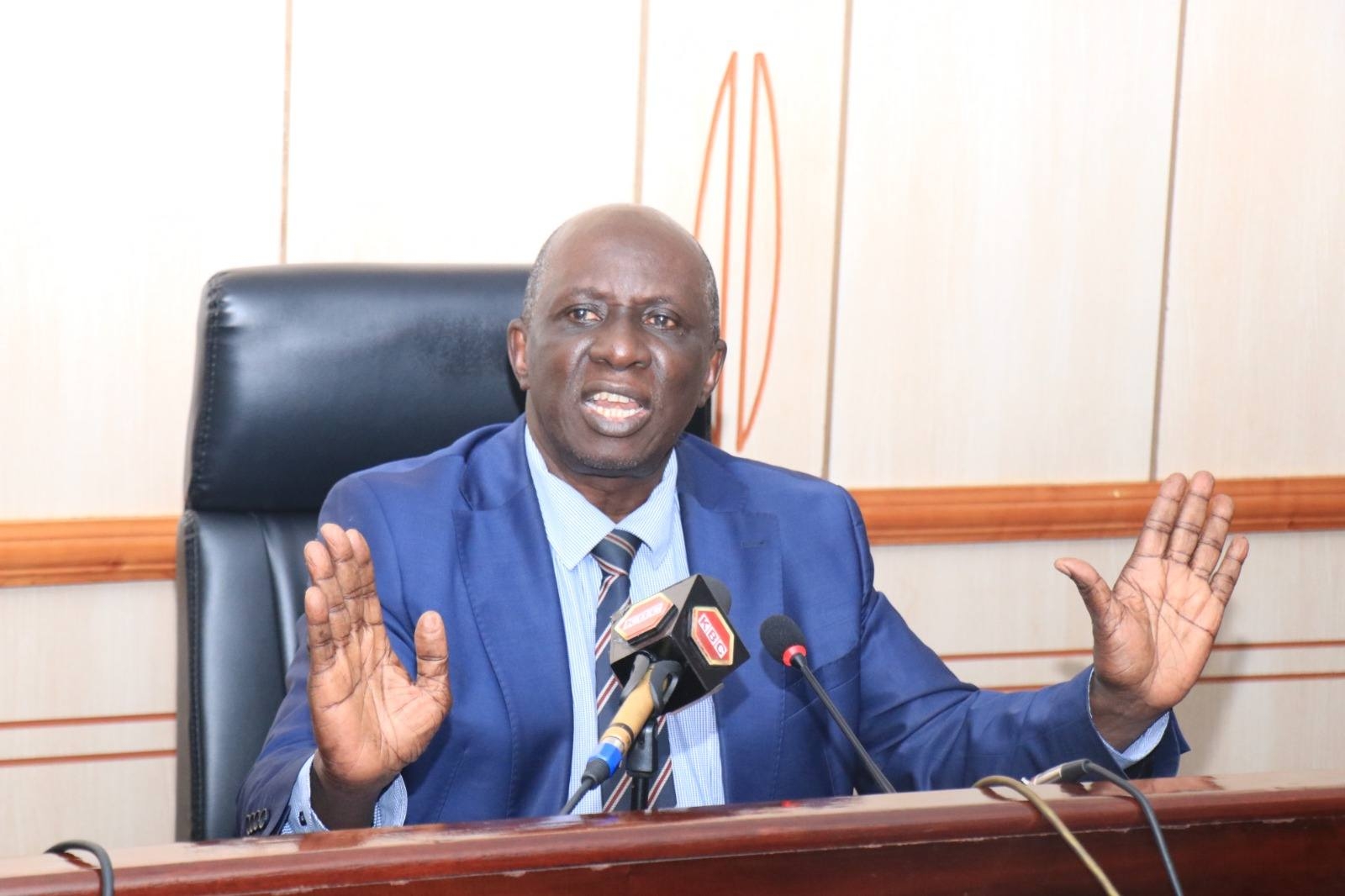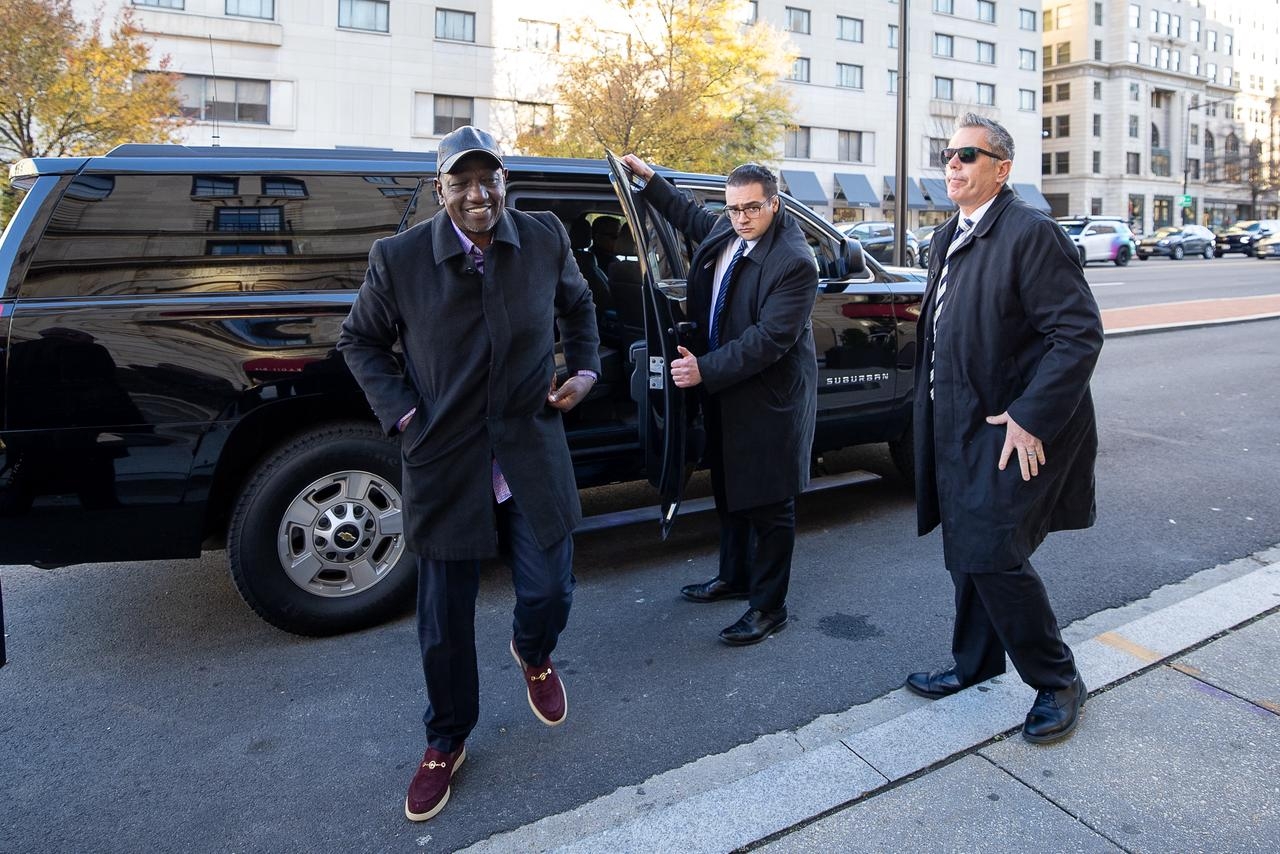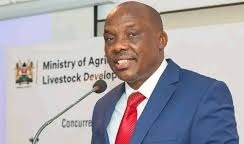The Kenya Kwanza administration will strengthen its partnerships with international bodies like the United Nations’ World Food Programme to realise its economic goals faster.
Prime Cabinet Secretary Musalia Mudavadi on Wednesday said it is such partnerships that can turn the country into the logistical hub for the region.
“You can imagine what that would mean in terms of employment, jobs, technology transfer and all other issues,” Mudavadi said.
He spoke during the launch of the GoK and the UN WFP partnership coordination workshop in Mombasa.
Mudavadi said the private and the public sectors are not enemies but partners.
“We should not behave as if one is the opposition and the other is government. We are one.”
He said already, the government and WFP have demonstrated how open government in co-creating can achieve the best possible outcomes for Kenya in food security and nutrition.
Education CS Ezekiel Machogu said Kenya, 60 years after independence, is still suffering from food insecurity.
He said some paradigm shift is required for sustainable development.
He said building of resilience systems is key to ensuring Kenya becomes food secure.
“Almost seven million of our Kenyan brothers and sisters were affected by the drought we experienced last year,” Machogu said, adding that had there been resilience systems in place, this would not have been the case.
He said Kenya has been excellent in making policies but weak in implementing them.
He said the partnership with WFP has seen the education sector make a positive stride.
Last year alone, WFP directly impacted the lives of 1.6 million Kenyans through its diverse programmes including refugees, drought-affected systems, small holder farmers and people participating in resilience systems.
Kenya’s strategic plan (CSP) 2023-2027, he said, was borne out of thorough consultations and thus is deeply aligned with Kenya’s priorities.
During the country’s last strategic plan 2018-2022, WFP mobilised close to $780 million (approximately Sh109.8 billion) to support its activities in Kenya.
For the current 2023-2027 CSP, WFP plans to mobilise $1.4 billion (approximately Sh197.1 billion) to bolster its activities in the country.
Mudavadi said one of the benefits of the open government policy is the co-funding approach that has been adopted between the Kenyan government and WFP, where government compliments financial support from partners.
“This allows us to support identified priorities jointly,” Mudavadi said.
He said this collaboration has enabled Kenya to strengthen its food systems and resilience.
WFP reaches 670,000 people in risk-prone areas, out of which 370,000 receive cash transfers and about 50,000 benefit from integrated climate risk management insurance.
“This is in addition to delivery of an integrated and complimentary resilient food system through supporting small holder producers and other value chain actors,” Mudavadi said.
He said this is why every US dollar invested in resilience in Kenya yields $2.8 (Sh394) in benefits.
“By focusing on resilience, we are not just reacting to crisis. We are preventing and in the process fostering a more robust and resilient economy,” Mudavadi said.
He called on the WFP to double its efforts on creating resilience, which he said will have far-reaching positive impacts on the livelihoods of Kenyans and the sustainability of the shared development goals.
However, climate change, he said, has become an integral obstacle to strengthening resilience.
He said the phenomenon has become a common occurrence among Kenyans.
“It has become an urgent issue that requires concerted efforts from all sectors including humanitarian organisations,” he said.
Mudavadi said the ambitious measures taken by the Kenya Kwanza administration in early warning and preventive action, nature-based solutions, climate risk insurance and promoting sustainable energy solutions, are the standard operating procedures for the country.
He called for support for these strategies to help adapt to and mitigate the impact of climate change.
“I call for a global stakeholder approach in tackling the climate change phenomenon. For those working in Kenya, let us bridge the gap between humanitarian assistance, development support and climate spaces.”
Partnerships, he said, are paramount to achieve this goal.
He called on counties to help in building resilience by putting in more resources towards the same.
The excellent working relationship between WFP, Kenya Ports Authority and Kenya Revenue Authority enabled last year’s transiting of about 250,000 metric tonnes of cargo through the Mombasa port, supporting Kenya, Uganda, South Sudan, Rwanda, Burundi, Eastern DRC, Somalia and occasionally Tanzania.
“WFP bought about 37,800 metric tonnes of food in Kenya worth $69 million (about Sh9.7 billion),” Mudavadi said.
In 2022 alone, over $35 million (about Sh4.9 billion) were paid to local transporters and logistics service providers.
“Each year there is an increase in amount of food purchased and logistics contracted,” Mudavadi said, showcasing that the WFP is supportive of the Kenyan economy creating a multiplier effect for transformative change.
He said because of the crisis around the globe, the amount of cargo expected to pass through the Mombasa port courtesy of the WFP is projected to be around 400,000 metric tonnes.
This means the multiplier effect is massive, he said.
“Let us partner and start selling hope to the people of Kenya. We are not telling them the good that is happening locally. Partnerships of this nature are beneficial to us as Kenyans.”
















